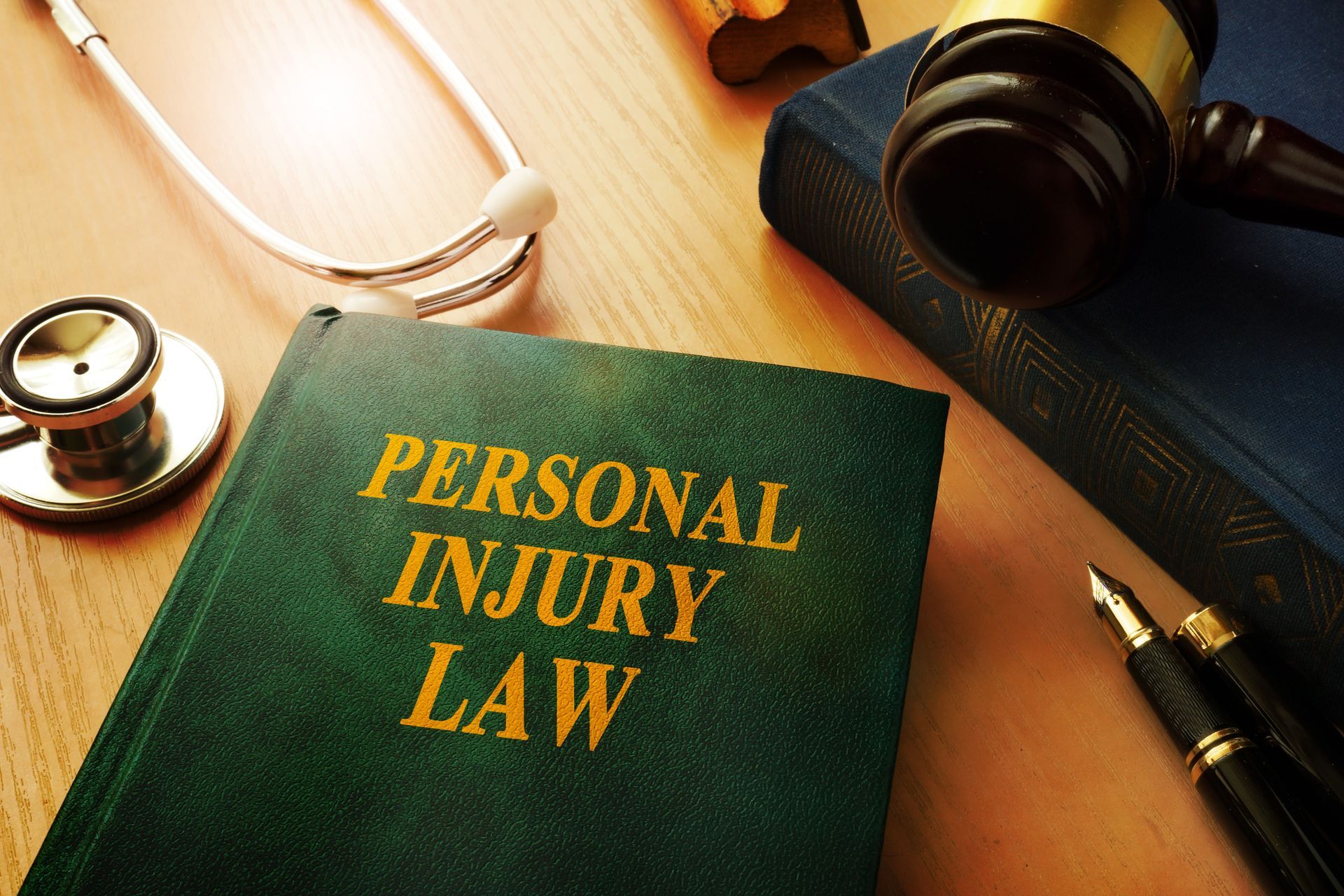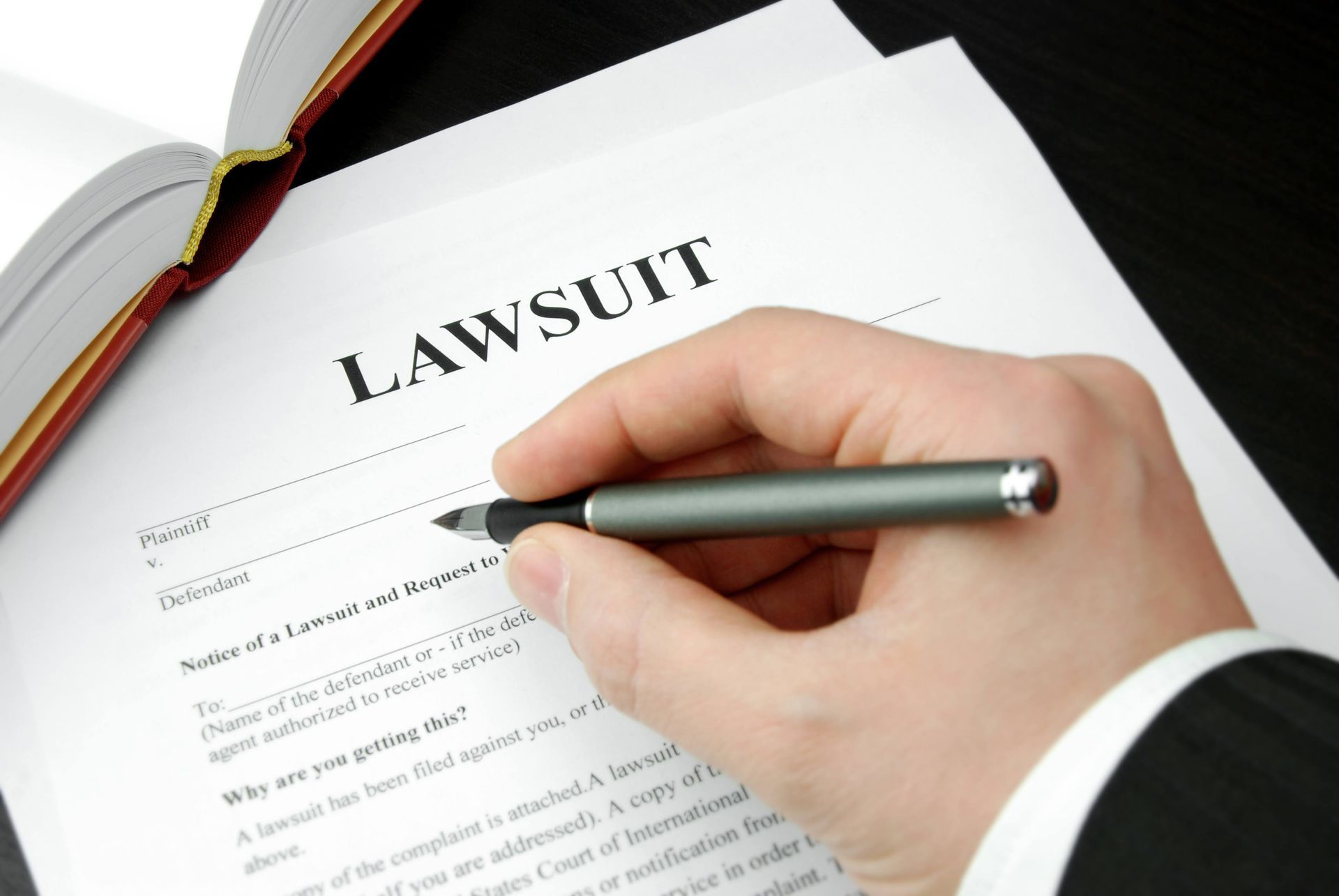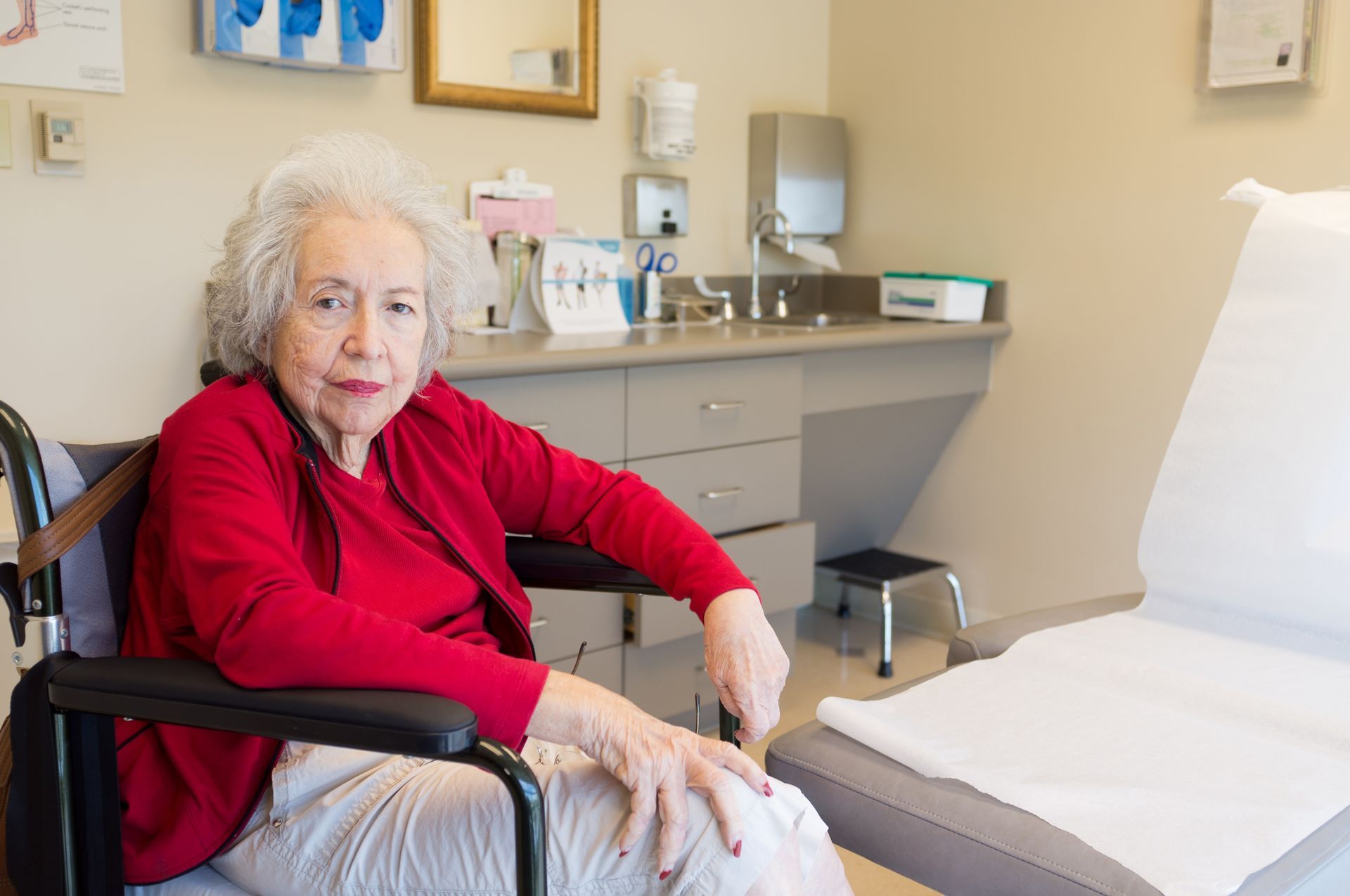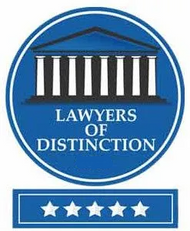5 Common Types of Compensation in a Personal Injury Case In New York State
July 7, 2022

Whether a slip and fall accident, medical malpractice, or car accident, anyone injured due to another party's negligence deserves compensation. However, the value of your claim depends on various factors, including the nature and extent of your injuries, how the accident happened, the pain and suffering you experience from the injury, and the medical treatment costs you've incurred after the injury.
Therefore, before filing a personal injury case, ensure that you know the type of compensation you are entitled to. Below are some common types of compensation you can claim in a personal injury case.
If you sustain injuries after an accident, the first thing you should do is to seek medical attention. The hospital you’ll visit will charge a medical bill based on the type of treatment provided. These bills can range from several hundred to thousands of dollars.
1a. Motor Vehicle Accidents
Under New York State Law, the vehicle you are operating or occupying as a passenger must have a No-Fault policy which will pay for out-of-pocket expenses that consist of medical payments, lost wages, travel expenses, and medications. You should check with your insurance carrier to make sure that you are properly insured for No-Fault benefits.
1b. All Other Accidents
In other types of personal injury actions, compensation should return you to the financial position you were in before the accident, the party at fault may be legally liable for all your medical costs, including medications, medical visits, surgeries, assistive aids, physical therapy, and any travel expenses incurred when seeking medical care.
However, the insurance carrier for the responsible party, normally will not pay for out-of-pocket expenses up front. Therefore, you must use your personal major medical insurance carrier. (BC/BS, AETNA, MEDICARE/MEDICAID, Union and/or Employer Plan) Some plans, including but not limited to: Medicare, Medicaid, and Union funded insurance will enter a lien for the medical payments that you a responsible to pay back. An experienced personal injury law firm will do everything in it's power to have the lien reduced. In addition, when resolving this matter the law firm must make sure that the lien payments are taken into account when settling and/or the trial of this matter to protect your legal interest.
Injuries can cause physical or emotional pain to the injured victim. For example, if an accident leaves you permanently disabled, the physical injuries could cause physical suffering, but you also experience emotional pain due to hardships like not being able to live without assistance.
Since pain and suffering may not have physical evidence, like photos and videos, you can write a documented journal of how your daily life has changed since you got the injury and provide testimonies from close family members and friends.
Testimonies from medical doctors regarding the extent of your injuries and their impact on your life or reports by mental health professionals are also crucial in proving physical and mental suffering.
You may lose your job during your recovery period following an accident. During this period, you could have little or no income. If your injury prevents you from working, you won’t receive an income until you fully recover and return to work.
Likewise, permanent injuries may force you to change your career, or you might lose your ability to work for the rest of your life.
In motor vehicle accident cases you may be entitled to lost wages through your No-Fault policy. In car accidents, the lost wage portion of No-Fault is somewhat limited and you should check with your insurance carrier for additional coverage.
In Worker's Compensation accidents, your employer(s) Worker's Compensation Carrier should pay lost wages until you are deemed not disabled. Depending on the type of accident, the Worker's Compensation Carrier will most likely file a lien which must be paid at the completion of your personal injury claim.
If your injury is found that you are seriously disabled/totally disabled, you may have the ability to file for Social Security Disability. Most personal injury firms do not represent clients for Social Security Disability claims but may have a recommendation for an attorney that specializes in the aforementioned.
A personal injury lawyer will assist you in finding that the party at fault compensate you for all the wages lost, including any other financial opportunities you could have enjoyed if you were at work, like potential promotions. In certain circumstances, where a permanent loss of income is found, the party at fault should pay the lifetime value of your income.
You can demand compensation for loss of enjoyment if your injuries cause the inability to enjoy your hobbies or recreational activities. For example, if you lost a leg in an accident, you may not be able to engage in some recreational activities.
You can claim compensation for wrongful death if a loved one dies from an accident caused by the negligence of another party. Factors that determine the value of wrongful death damages include the medical bills and funeral costs of the victim, and any economic losses you've experienced after the death of your loved one.
Though compensation from a personal injury case may not fully make you whole again, you get the finances you need to put your life back together. However, you must prepare for your case because settlement amounts vary depending on circumstances. The information above will help you know what factors influence compensation in your situation.
At Schonberg Law Offices, we are committed to helping our clients receive the compensation they deserve. Contact us today for a free case evaluation.
Therefore, before filing a personal injury case, ensure that you know the type of compensation you are entitled to. Below are some common types of compensation you can claim in a personal injury case.
1. Medical Expenses
If you sustain injuries after an accident, the first thing you should do is to seek medical attention. The hospital you’ll visit will charge a medical bill based on the type of treatment provided. These bills can range from several hundred to thousands of dollars.
1a. Motor Vehicle Accidents
Under New York State Law, the vehicle you are operating or occupying as a passenger must have a No-Fault policy which will pay for out-of-pocket expenses that consist of medical payments, lost wages, travel expenses, and medications. You should check with your insurance carrier to make sure that you are properly insured for No-Fault benefits.
1b. All Other Accidents
In other types of personal injury actions, compensation should return you to the financial position you were in before the accident, the party at fault may be legally liable for all your medical costs, including medications, medical visits, surgeries, assistive aids, physical therapy, and any travel expenses incurred when seeking medical care.
However, the insurance carrier for the responsible party, normally will not pay for out-of-pocket expenses up front. Therefore, you must use your personal major medical insurance carrier. (BC/BS, AETNA, MEDICARE/MEDICAID, Union and/or Employer Plan) Some plans, including but not limited to: Medicare, Medicaid, and Union funded insurance will enter a lien for the medical payments that you a responsible to pay back. An experienced personal injury law firm will do everything in it's power to have the lien reduced. In addition, when resolving this matter the law firm must make sure that the lien payments are taken into account when settling and/or the trial of this matter to protect your legal interest.
2. Pain and Suffering
Injuries can cause physical or emotional pain to the injured victim. For example, if an accident leaves you permanently disabled, the physical injuries could cause physical suffering, but you also experience emotional pain due to hardships like not being able to live without assistance.
Since pain and suffering may not have physical evidence, like photos and videos, you can write a documented journal of how your daily life has changed since you got the injury and provide testimonies from close family members and friends.
Testimonies from medical doctors regarding the extent of your injuries and their impact on your life or reports by mental health professionals are also crucial in proving physical and mental suffering.
3. Loss of Income and Earning Capacity
You may lose your job during your recovery period following an accident. During this period, you could have little or no income. If your injury prevents you from working, you won’t receive an income until you fully recover and return to work.
Likewise, permanent injuries may force you to change your career, or you might lose your ability to work for the rest of your life.
In motor vehicle accident cases you may be entitled to lost wages through your No-Fault policy. In car accidents, the lost wage portion of No-Fault is somewhat limited and you should check with your insurance carrier for additional coverage.
In Worker's Compensation accidents, your employer(s) Worker's Compensation Carrier should pay lost wages until you are deemed not disabled. Depending on the type of accident, the Worker's Compensation Carrier will most likely file a lien which must be paid at the completion of your personal injury claim.
If your injury is found that you are seriously disabled/totally disabled, you may have the ability to file for Social Security Disability. Most personal injury firms do not represent clients for Social Security Disability claims but may have a recommendation for an attorney that specializes in the aforementioned.
A personal injury lawyer will assist you in finding that the party at fault compensate you for all the wages lost, including any other financial opportunities you could have enjoyed if you were at work, like potential promotions. In certain circumstances, where a permanent loss of income is found, the party at fault should pay the lifetime value of your income.
4. Loss of Enjoyment
You can demand compensation for loss of enjoyment if your injuries cause the inability to enjoy your hobbies or recreational activities. For example, if you lost a leg in an accident, you may not be able to engage in some recreational activities.
5. Wrongful Death
You can claim compensation for wrongful death if a loved one dies from an accident caused by the negligence of another party. Factors that determine the value of wrongful death damages include the medical bills and funeral costs of the victim, and any economic losses you've experienced after the death of your loved one.
Though compensation from a personal injury case may not fully make you whole again, you get the finances you need to put your life back together. However, you must prepare for your case because settlement amounts vary depending on circumstances. The information above will help you know what factors influence compensation in your situation.
At Schonberg Law Offices, we are committed to helping our clients receive the compensation they deserve. Contact us today for a free case evaluation.











